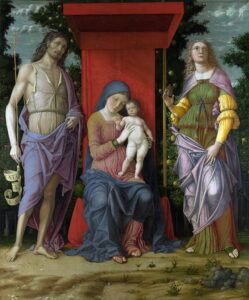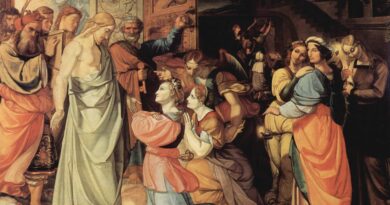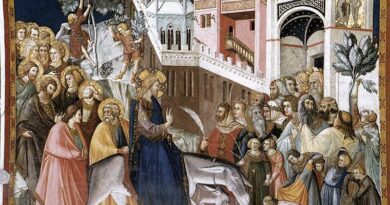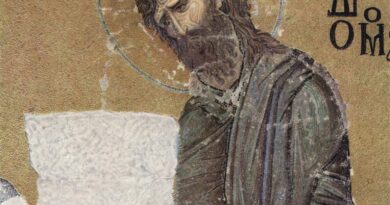Third Sunday of Advent/C
Massimo Palombella

The present Sunday is called “Gaudete” from the first word of the Introitus, whose text (Gaudete in Domino semper: iterum dico, gaudete. Dominus enim prope est) is taken from chapter 4 of Paul’s Letter to the Philippians (Phil 4:4.5). Today the colour of the sacred vestments is pink (as on Lenten Sunday “Laetare“), to show us in a visual manner that Christmas is coming, that the Lord is near and that we are called to rejoice in it.
In today’s Gospel (Lk 3:10-18) the crowds, publicans and some soldiers interrogate John the Baptist with the same question: “What shall we do?”.
It is interesting to note that their question comes from an expectation, from waiting for the Messiah. And their question could also be our question, that question which, if we have the courage to allow it to exist, to emerge, has the capacity to change our lives for the better, to transform our existence into “salvation history”. In fact, giving ourselves permission to stop having a certain and sure answer about everything in life, allows us to open a glimpse, a small opening to the possibility of meeting the true God, beyond all our invention.
What should I do about my life, my existential and professional choices, my affections, my wife, my husband, my belongings, my history, my weaknesses, my roots, my children, my conditioning, the man, the woman I can and must be?
If I put all this before God, if I open myself up to the possibility that the true God may love me and lead me in his ways, I begin to experience a life where I can finally “leave”, where things can happen and where I can live to the full, I can let the Lord make me experience “life in abundance”.
To truly wait on the Lord is, in essence, to be willing to “leave space” for him so that our lives can be better.
The Gradual of today’s celebration is taken from Psalm 79 (Ps 79, 2. 3) with the following text:
Qui sedes, Domine, super Cherubim, excita potentiam tuam, et veni.
Qui regis Israel, intende: qui deducis, velut ovem, Joseph
(O Lord, who are enthroned upon the Cherubim, stir up your might and come forth.
O Shepherd of Israel, hear us, you who lead Joseph like a flock).
The attached music, in Gregorian Chant, is taken from the Gradual Triplex published in Solesmes in 1979. The interpretation is by the ‘Choralschola der Wiener Hofburgkapelle’ conducted by Hubert Dopf. The music track can be found on the CD ‘Gregorian Chant’ published by Universal International Music B.V. in 1997.
A blessed Sunday and heartfelt greetings.


